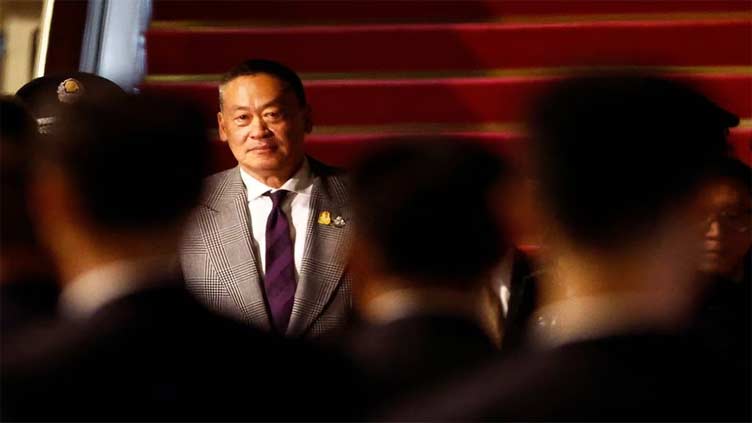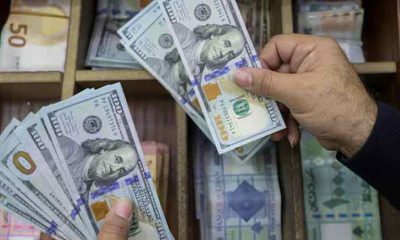Business
Thailand still bullish on Chinese investments as new PM heads to Beijing
Thailand has managed to retain its attraction as a vital investment hub

Chinese investment in Thailand has picked up pace this year despite an economic slowdown in the Asian giant, a welcome boost for the country’s new prime minister who flew into Beijing this week to bolster ties with its largest trading partner.
A stuttering recovery in the world’s second-biggest economy has spooked financial markets in 2023 as investors fretted about the impact on global growth, although Thailand has managed to retain its attraction as a vital investment hub including for China’s growth-hungry firms.
Between January and August, Thailand received foreign investment applications worth 365.2 billion baht ($10.1 billion) – 73% higher than the same period last year – led by Chinese firms that committed 90.3 billion baht, up nearly three times year-on-year, according to the Thailand Board of Investment (BOI).
Investment pledges from second-placed Singapore, totalling 76.4 billion baht, were also largely from companies originally from China, said BOI Secretary General Narit Therdsteerasukdi.
“And if you look at the month-by-month statistics, Chinese investments are still increasing,” he told Reuters. “So I see that in the next two or three years, Chinese investments will still increase drastically in Thailand.”
Net foreign direct investment to Thailand from China in the first six months of this year was up 56% year-on-year to 25.1 billion baht, central bank data shows.
This wave of investments into Thailand comes at a time of growing concerns over an economic slowdown in China, and is a shot in the arm for Thai premier Srettha Thavisin, who pledged to turn around Southeast Asia’s second largest economy when he took over the reins in August.
Thailand’s central bank expects 2024 economic growth to pick up to 4.4%, from a forecast 2.8% this year.
Srettha told reporters before flying out on Monday that his three-day visit to Beijing, centred around a forum on China’s Belt and Road Initiative, would include discussion on electric vehicles.
The premier met with Xiaomi Corp’s executive Alain Lam on Tuesday, as the smartphone maker works on its goal of producing EVs by early next year.
“The company is looking for a production facility to further its growth in many areas including EV,” a Thai government spokesperson said.
‘GOLDEN OPPORTUNITY’
Chinese EV manufacturers – including BYD and Great Wall Motor – have investment commitments of at least $1.44 billion in new facilities in Thailand, turning the country into a regional hub for EV production.
Thailand is already Southeast Asia’s largest production centre for combustion engine vehicles, hosting major facilities of Japanese carmakers including Toyota Motor and Isuzu Motors.
But a large proportion of the 228 Chinese investments proposals this year have come in the electronics sector, according to the BOI.
“We have good relationships with all countries,” Narit said. “We are a conflict-free zone.”
WHA Group, Thailand’s largest industrial estate developer, said it is seeing no slowdown in business with Chinese companies, which will help it reach a second straight year of record land sales.
“They come every week,” CEO Jareeporn Jarukornsakul told Reuters. “There really are a lot of them.”
Chinese investments will likely continue for the next two years, Jareeporn said.
“It’s a golden opportunity.”
Business
Dollar treads water as Trump tariff clarity, central banks awaited

The dollar steadied against major peers on Thursday, continuing its near paralysis of the past two days before more concrete announcements on tariffs from U.S. President Donald Trump.
A spate of central bank policy decisions are also due over the next week, with the Bank of Japan widely expected to raise interest rates at the end of a two-day meeting on Friday.
Rate decisions from the U.S. Federal Reserve and European Central Bank are scheduled for Wednesday and Thursday of next week, respectively.
The dollar index – which measures the currency versus six top rivals, including the euro and yen – was flat at 108.25, following two days of gains of around 0.1%.
On Monday, it tumbled 1.2%, its steepest one-day slide since November 2023, as Trump’s first day in office brought a barrage of executive orders, but none on tariffs.
So far this week, Trump has mooted levies of around 25% on Canada and Mexico and 10% on China from Feb. 1. He also promised duties on European imports, without giving details.
“President Trump has so far taken a less hostile-than-expected approach to China,” amid overall “softer-than-expected policies and tone on tariffs”, said Carol Kong, a currency strategist at Commonwealth Bank of Australia.
At the same time, “we are cautious (that) risk sentiment remains fragile and can quickly turn sour if President Trump strikes a more aggressive tone.”
The Chinese yuan was little changed at 7.2812 per dollar in offshore trading .
Wall Street’s main indexes rose Wednesday, with the S&P 500 hitting an intraday record high thanks to strong Netflix earnings and a rally in tech shares.
Japan’s yen edged up about 0.1% to 156.40 with markets pricing 95% odds of a quarter-point hike on Friday.
The euro was flat at $1.0411. The ECB is widely expected to cut rates by a quarter point next week.
The Canadian dollar held steady at C$1.4386 against the greenback. The Bank of Canada is seen as likely to reduce rates by a quarter point next Wednesday.
The Mexican peso was little changed at 20.47 versus the U.S. currency.
Business
Oil prices extend losses amid uncertainty over tariff impact

Oil prices dipped in early trade on Thursday, extending losses amid uncertainty over how proposed tariffs by U.S. President Donald Trump on several countries would impact global economic growth and energy demand.
Brent crude futures fell 23 cents, or 0.3%, to $78.79 a barrel at 0135 GMT, while U.S. West Texas Intermediate crude (WTI) eased 18 cents, or 0.2%, to $75.26.
In its previous session, Brent futures settled at $79.00 in a fifth straight day of losses. WTI futures settled at $75.44 in a fourth consecutive day of declines.
Trump has said he would add new tariffs to his sanctions threat against Russia if the country does not make a deal to end its war in Ukraine. He added these could be applied to “other participating countries” as well.
He also vowed to hit the European Union with tariffs, impose 25% tariffs against Canada and Mexico, and said his administration was discussing a 10% punitive duty on China because fentanyl is being sent to the U.S. from there.
Meanwhile, estimates from an extended Reuters poll showed that on average U.S. crude oil stockpiles were expected to have fallen by 1.6 million barrels in the week to Jan. 17.
Gasoline stockpiles were estimated to have risen by 2.3 million barrels last week, and distillate inventories were likely to have gained 300,000 barrels.
The poll was conducted ahead of the American Petroleum Institute industry group’s report and another from the Energy Information Administration at 12:00 p.m. ET (1700 GMT) on Thursday.
European wind shares fell on Tuesday (January 21).
The reports were delayed by a day due to the Martin Luther King Jr. Day federal holiday on Monday.
Business
Pakistan, Saudi Arabia reaffirm commitment to boost economic ties

Pakistan and Saudi Arabia have reaffirmed their commitment to further strengthening the bilateral economic ties for shared prosperity.
The commitment was expressed when Finance Minister Muhammad Aurangzeb met with his Saudi counterpart Mohammad bin Abdullah Al-Jadaan on the sidelines of World Economic Forum Annual Meeting in Davos.
Muhammad Aurangzeb highlighted the key reform measures undertaken by the Government to promote economic stability and sustainable growth.
He briefed him on structural reforms, fiscal discipline and regulatory improvements that have contributed to an improved investment climate in Pakistan.
Earlier, Aurangzeb met Anna Bjerde, Managing Director of Operations at the World Bank.
They discussed cooperation between Pakistan and the World Bank, with a particular focus on Pakistan’s macroeconomic stability.
The finance minister emphasized the government’s strong partnership with the Bank and expressed hope that the World Bank would continue playing a key role in the country’s socio-economic development.
-

 Business2 months ago
Business2 months agoAuto industry’s shift toward EVs is expected to go on despite Trump threat to kill tax credits
-

 Entertainment3 months ago
Entertainment3 months agoBeyoncé leads the 2025 Grammy noms, becoming the most nominated artist in the show’s history
-

 Business3 months ago
Business3 months agoWall Street cruises toward the close of its best week in a year
-

 pakistan3 months ago
pakistan3 months agoPM Shehbaz terms promotion of foreign investment as top priority
-

 World2 months ago
World2 months agoSix Israeli troops killed, deadly strikes in Lebanon
-

 Entertainment2 months ago
Entertainment2 months agoMovie Review: ‘Red One’ tries to supersize the Christmas movie
-

 Sports1 month ago
Sports1 month agoSouthampton set to sign Juric as new manager
-

 Business2 months ago
Business2 months agoWall Street gains ground as it notches a winning week and another Dow record

















